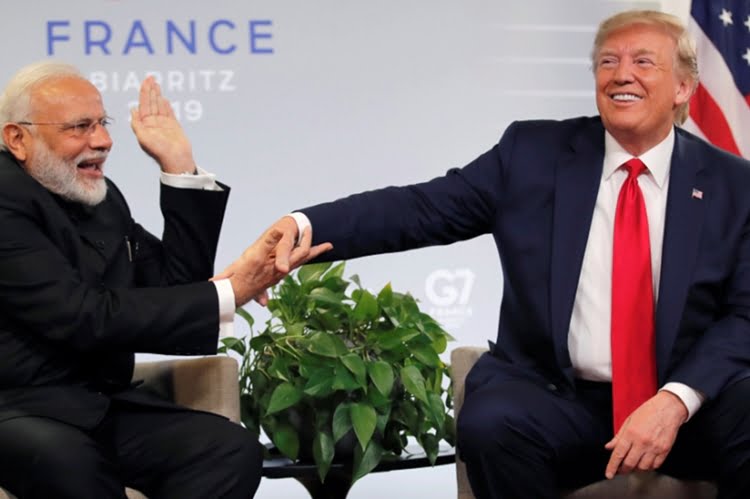In 2021, the Delhi government banned crackers on Diwali. However, it was not a blanket ban. This ban would have helped to not worsen the already deteriorating air quality of Delhi. This was done in the context of what happened in 2020. In 2020, the day after Diwali, Delhi saw a spike in air pollution after people flouted the cracker ban. The Air Quality Index (AQI) of Delhi reached as high as 461. (For context, AQI is considered satisfactory when 150 or below).
This has been the case for the past few years, with schools, some colleges and offices, and construction work shutting down for a few days after Diwali due to excessive pollution. This pollution casts a thick cloud of smog over the city as it turns grey. It causes health issues like breathing difficulties, cough, cold, sore throats and severely aggravates pre-existing respiratory conditions such as asthma. These problems disproportionately affect marginalised communities, especially the homeless, because they are unable to shelter themselves from the pollution.
There is also some debate around how northwest winds towards Delhi from Punjab, Haryana and Uttar Pradesh cause the pollution because of stubble burning by farmers that takes place during this time of the year. However, recent studies show that it only contributes to 10% of it. Burning crackers remain the leading cause of Delhi’s air pollution and aggravators include road dust and industries.
There is also some debate around how northwest winds towards Delhi from Punjab, Haryana and Uttar Pradesh cause the pollution because of stubble burning by farmers that takes place during this time of the year. However, recent studies show that it only contributes to 10% of it. Burning crackers remain the leading cause of Delhi’s air pollution and aggravators include road dust and industries.
Also read: How Is Air Pollution Silently Killing Women In India?
Backlash Against the Cracker Ban: Pedestalising Hindu Sentiments
There was an immediate backlash against the cracker ban, claiming that this ban was an attack on Hinduism. There were complaints that such bans were only made for a Hindu festival, Diwali. A comparison was made to Bakra Eid, stating that there is no ban on slaughtering goats. While the ecological ethics of the practice may be debated, sacrificing goats does not cause the profoundly damaging and devastating environmental harm that bursting crackers on a mass basis on Diwali does. The reason crackers are explicitly banned on Diwali is because it is the collective and widespread bursting of crackers that causes this much harm. While crackers are never good for the environment and avoiding them is always encouraged, groups occasionally bursting crackers throughout the year do significantly lesser harm the way the cracker-bursting on Diwali does.
In today’s political climate, religious sentiments, particularly sentiments of the Hindu community (specifically upper-caste Hindus), have been put on a pedestal. This is largely because the ruling government is that of the Bhartiya Janta Party (BJP), which openly supports Hindutva and is affiliated with many Hindutva organisations, particularly Rashtriya Swayamsevak Sangh (RSS). This government is led by Prime Minister Narendra Modi, a long-time member of the RSS.
There have been many recent incidents where religious sentiments have been cited as the reason for unreasonable backlash. When Bollywood actor Aamir Khan requested people not to burst firecrackers on streets in an advertisement, he received extreme flak. A member of the BJP commented that a Muslim should not interfere in ‘Hindu matters’, ignoring the blatantly obvious fact that the pollution would affect everyone.
Another example is the infamous beef ban, which prohibits the sale of buffalo and cow meat because the cow is worshipped in the Hindu religion and consumption of beef considered wrong. It was said that this was a decision to ‘bring science and spirituality together’, but we are still waiting for the science behind it to be explained. Such a law is clearly against the secular fabric of India, yet it was implemented. Similarly, stalls selling non-vegetarian food in Ahmedabad have just been banned because they were ‘negatively impacting the minds of children’.
There was a similar backlash against a gender-sensitising manual published by the National Council of Educational Research and Training (NCERT). The manual was meant to educate teachers about the LGBTQ+ community and to be sensitive towards transgender students and those exploring their gender identity. However, it was taken down after there was an uproar saying it would ‘traumatise children’ and was trying to ‘attack Hindu culture’. There was also a backlash against a (problematic) Dabur ad showing lesbians celebrating Karva Chauth. there were claims that it was trying to ‘defile the holy traditions of the Hindu religion’.
State vs Centre: Party Politics
As mentioned before, many people against the ban are supporters of BJP and Prime Minister Narendra Modi. The ban was issued by the chief minister of Delhi, Arvind Kejriwal. The Centre has long been feuding with them for control over Delhi and fought with them over the cracker ban issue. They have, in fact, been feuding with other state parties such as the Shiv Sena in Maharashtra. It has completely changed the federal nature of the government and increased centralisation, as can be seen with the introduction of the Goods and Services Tax (GST), which took away the power of the state government to collect taxes, making them highly reliant on the central government for funds.
Global Political Shift to the Right
There has been a global political shift towards right-wing politics. Apart from Prime Minister Modi, these examples can be seen in leaders such as former POTUS Donald Trump, United Kingdom’s PM Boris Johnson and Brazil’s President Jair Bolsonaro.

The right-wing governments of Modi and Trump have exhibited solidarity for each other in the past. Trump was invited to India, and Modi held a ‘Namaste Trump’ rally, mainly to showcase a trade deal that fell through before the event even commenced. Modi went to the USA, and a ‘Howdy Modi’ rally was held in his honour which Trump used to appeal to his Indian-American voter base.
In the USA, the right-wing party- the Republican party – are climate change deniers. They have openly said that they believe that climate change and global warming aren’t real and that increasing pollution and natural disasters are coincidental. They also believe that industry and economic growth are more important than addressing any environmental concerns. Many even believe that environmental concerns are a conspiracy to topple the USA as an economic superpower. Trump is one of them, as he backed out of the 2015 Paris Agreement, a multicultural international agreement committed to fighting climate change and repairing ecological and environmental damage. He claimed the agreement was a ploy to deplete the USA of its finances. The Republican Party has also repeatedly opposed the Green New Deal, a bill by the opposing party, Democratic Party, to shift to clean energy, along with tackling other social issues, mainly class issues.
The right-wing solidarity gives the Modi government an excuse to undermine the importance of environmental issues. In fact, the right-wing solidarity gives them a chance to prioritise other issues such as Hindu sentiments, both because of their projected beliefs, affiliations with RSS and other Hindutva organisations, and appeal to their main voter base of upper-caste Hindus.
Religious Freedom vs Right to Life
These objections against the cracker ban have been made under the guise of religious freedom. While religious freedom is a fundamental right and essential in a secular nation, religious freedom does not give you the privilege to risk and harm other people’s lives, which is precisely what the pollution after cracker-bursting at Diwali does. This religious freedom violates others’ right to life, guaranteed under the constitution. Right to Life states that citizens should live a life of dignity with access to at least the bare necessities of life- this includes the right to health. It states very clearly in the constitution that religious freedom cannot hinder or interfere in providing social welfare and reform. The cracker ban is clearly about public welfare, as cracker-bursting causes many health issues, as mentioned before.
This year, too, the cracker ban was openly and proudly flouted. The API index crossed the dreaded 500 mark. Hindutva supporters, and even some ministers, celebrated their rebellion, declaring it a victory, claiming that this showed that Hindus would rise and find their freedom in “oppression”. The smoke choking the city affected them as well, but religious sentiments seemed to take precedence. The difference lies in the fact that after tweeting about their “victory”, they could shut their doors and windows and even buy an air purifier to protect themselves from their own damage.
Meanwhile, daily-wage labourers and the homeless struggle to continue working as the thick, dark smog settled over the city.
Featured image source: Business Standard
About the author(s)
Jyni Verma is a writer with a focus on gender, intersectionality, social justice issues and cultural analysis. They are currently pursuing their masters in sociology at Jamia Millia Islamia.





